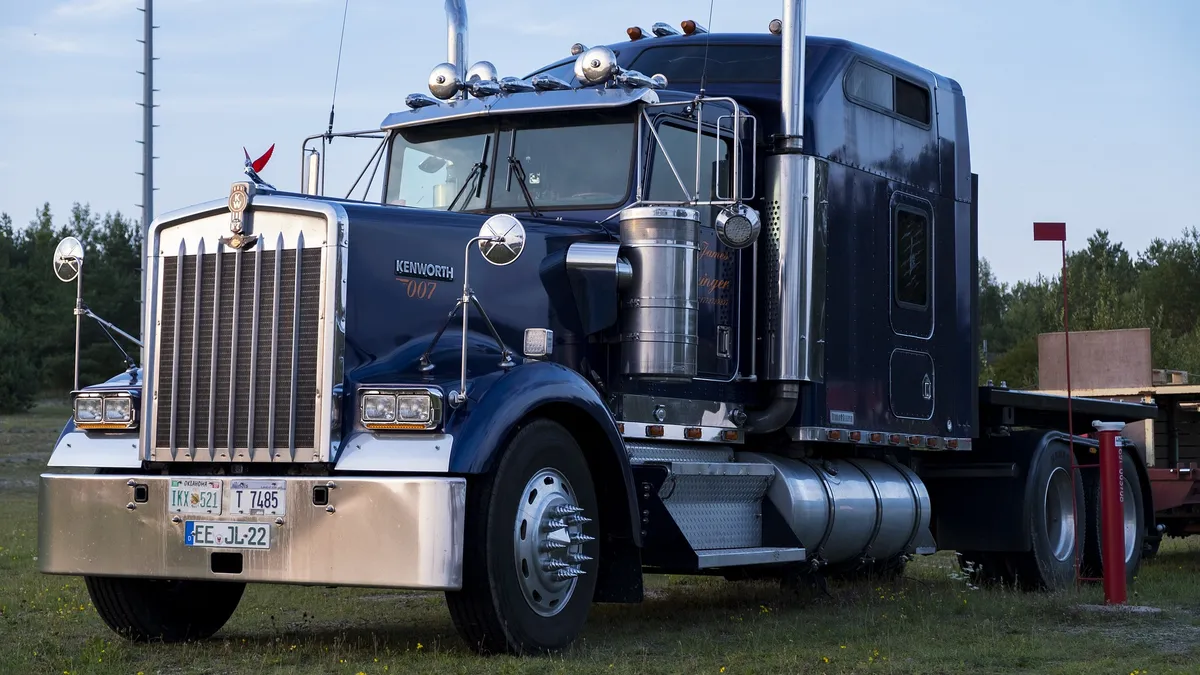Dive Brief:
- The American Trucking Associations and the American Transportation Research Institute have compiled research that discusses the details of self-driving big-rig trucks, Arkansas Online reported. Thus far, most autonomous vehicle attention has centered on cars and pickups.
- The American Trucking Associations' report states that the autonomous trucking industry requires clearer jurisdiction than it has thus far received. Though interstate commerce already has federal oversight, the association believes the federal government should also manage the "performance and technical" requirements of automated trucks.
- Despite this, autonomous vehicle bills wending their way through Capitol Hill don't address the 18-wheelers. Efforts this fall to include them were nixed and dismissed.
Dive Insight:
Autonomous vehicles could have a much greater effect on society than previously realized.
A view of the future based on the prevalence of autonomous vehicles is wildly divergent from our current status as an auto loving — and auto dependent — culture. Reclaimed thoroughfares, alternative uses for parking lots, both on the ground and as buildings, and refashioned urban real estate able to cheaply ferry workers from public transportation to new locations are already happening in parts of New York, such as in Times Square.
If plans for autonomous vehicles do come to fruition, reductions in ownership could drop by 80%, while the cost of electric ride-sharing may sink to four to 10 times less than maintaining a car, resulting in savings that could reach $1 trillion for U.S. households.
E-commerce especially would be impacted. "The widespread implementation of autonomous trucks would alter the fulfillment cycle and expedite e-commerce delivery times, meaning industrial owners and users will need to reconsider where their facilities are located, how much space they need to operate efficiently, and how to best utilize their space," Adrianna Boursalian, Research Coordinator at Transwestern and co-author of a report called The New Industry Driver told Supply Chain Dive. "Add autonomous robots into the mix to operate warehouses and manufacturing buildings, and these spaces may see more flexibility and efficiency in existing space."
It's a fascinating view of the future.













